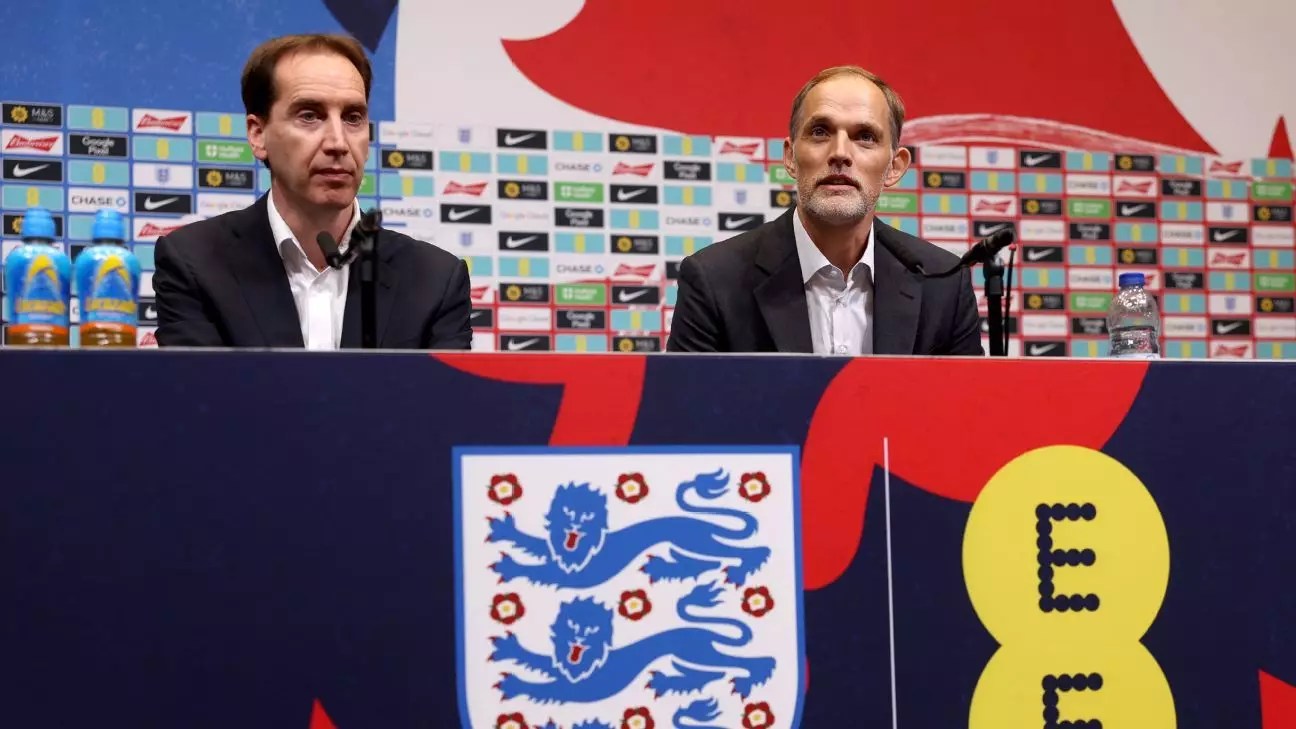Thomas Tuchel is embarking on an ambitious journey as the newly appointed head coach of the England national football team, set to commence his duties on January 1. Following Gareth Southgate’s tenure, Tuchel’s appointment signals a pivotal moment not only for him but also for English football’s future trajectory. His prior experience at Chelsea and bevy of international coaching accolades position him favorably to make significant changes, particularly in assembling a backroom staff that he trusts. This reflects his strategic vision to enhance the national team’s performance while leveraging familiar connections.
One of Tuchel’s first decisions includes bringing Anthony Barry on board as his assistant. Barry, who previously worked alongside Tuchel at Chelsea, has gained a reputation for his analytical capabilities and was recently part of the Portuguese national team setup. This move illustrates Tuchel’s reliance on trusted companions who understand his tactical philosophy and can translate it effectively to the players. During his unveiling, Tuchel echoed the need for a compact but highly skilled coaching unit, hinting that while he values familiarity, he also recognizes the existing capabilities within the Football Association’s (FA) structure.
Sources reveal that Tuchel is not stopping with just Barry. The FA has reached out to Chelsea regarding the head of performance analysis, James Melbourne, indicating that he is likely to follow Barry to the England camp. Furthermore, Tuchel’s admiration for Hilario, the goalkeeping coach at Chelsea, suggests a possible triangular movement within Chelsea’s coaching echelons. Such maneuvers point towards a desire to maintain a consistent coaching ethos that Tuchel has propagated throughout his career.
Chelsea’s current manager, Enzo Maresca, has commented on these potential staff changes, emphasizing the club’s open stance on allowing individuals to explore new opportunities. His acknowledgment regarding the analysts signifies a recognition that growth often involves letting staff seize new chances, albeit the club wishes to hold on to essential talents. Maresca’s diplomatic approach not only reflects a commitment to individual progress but also hints at Chelsea’s strategic outlook on maintaining their competitive edge in the league and beyond.
Tuchel’s strategic raid on Chelsea highlights the nuances of modern football management where relationships play a crucial role in creating successful teams. As he forms his backroom staff, the decisions made in the coming weeks could significantly shape the identity of the England team moving forward. Tuchel’s clear focus on quality over quantity resonates with a contemporary approach in sports management, where the synergy between coaching staff and players can drastically affect results on the pitch. As fans and analysts eagerly await to see how Tuchel will harness the talents within the England camp, the broader implications on both the national team and Chelsea’s future will undoubtedly unfold in intriguing ways.


Leave a Reply